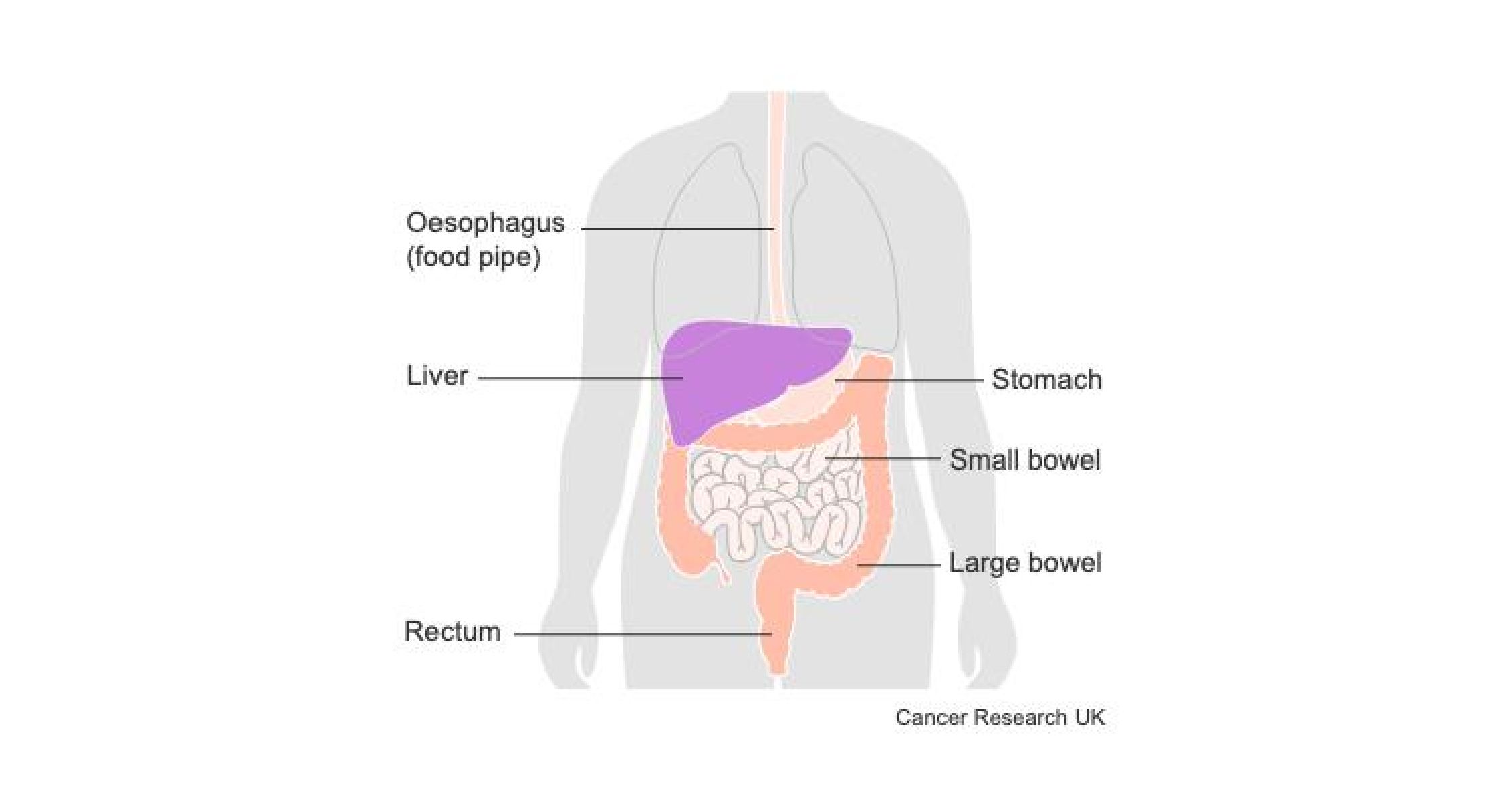What is the bowel?
The bowel consists of the small bowel and the large bowel. The small bowel is often referred to as the small intestine while the large bowel consists of the large intestine (or colon) and the rectum. The main purpose of the bowel is to process all the food we eat, extract the nutrients and then expel the waste products.
What is bowel cancer?
Bowel cancer, also known as colorectal cancer, refers to any cancer that occurs in the large bowel. Cancer is far less likely to develop in the small bowel but when it does it is usually termed small bowel cancer. The majority of bowel cancers develop from polyps - non-cancerous growths - in the bowel. Polyps don’t always develop into cancer but they are often still removed when found in order to limit the chances of cancer developing.
Bowel cancer in numbers
- The 4th most common cancer in the UK
- The 2nd biggest cancer killer in the UK (accounting for about 16,500 deaths each year)
- Approximately 43,000 people are diagnosed each year in the UK
- It mainly affects people over 50 but cases are on the rise among younger people
- 9 out of 10 people will survive bowel cancer when it’s diagnosed early
- However, only 1 out of 10 people will survive stage 4 bowel cancer
- Over half of bowel cancers are preventable
Who does bowel cancer affect?
Although bowel cancer mainly affects those over the age of 50, there has been a sharp rise in diagnoses in younger people in recent years according to various studies. A BMJ Oncology report published last year claimed that there has been an 80% increase in diagnoses in under-50s over the last three decades, with a further 21% increase expected by 2023.
And a recent study published by Annals of Oncology has found that death rates from bowel cancer among those aged 25-49 are predicted to rise by over a third in 2024 when compared with the previous study period (2015-2019). Experts have attributed the rise to lifestyle issues, including a surge in obesity, poor diet and physical inactivity.
What causes bowel cancer?
Although we don’t know exactly what causes most bowel cancers, we do know that certain things can increase the chances of developing cancer. In order to minimise the risk of bowel cancer, try to ensure you get enough fibre in your diet, avoid processed meat where possible, reduce alcohol consumption, quit smoking, maintain a healthy weight and take plenty of physical exercise.
Common symptoms of bowel cancer
If you notice any of the following symptoms then it could be a sign of bowel cancer and should consult your GP.
- Bleeding from bottom and/or blood in poo
- Unexplained weight loss
- Unexplained changes in bowel habits and frequency
- Constant tiredness (fatigue) for no obvious reason
- Pain or lump in tummy
Bowel cancer screening
Despite the recent findings, a bowel cancer screening programme is only available to people aged 60-74 in England. If you fall into this bracket, you will be sent a test kit in the post, which requires you to send a sample off to be tested. Results will then follow in a few weeks. However, there are growing calls for screening to begin much earlier.
Newfoundland’s Bowel Health Test allows people of any age to test their poo for faecal occult blood (FOB), one of the most common symptoms of bowel cancer and other digestive conditions.
